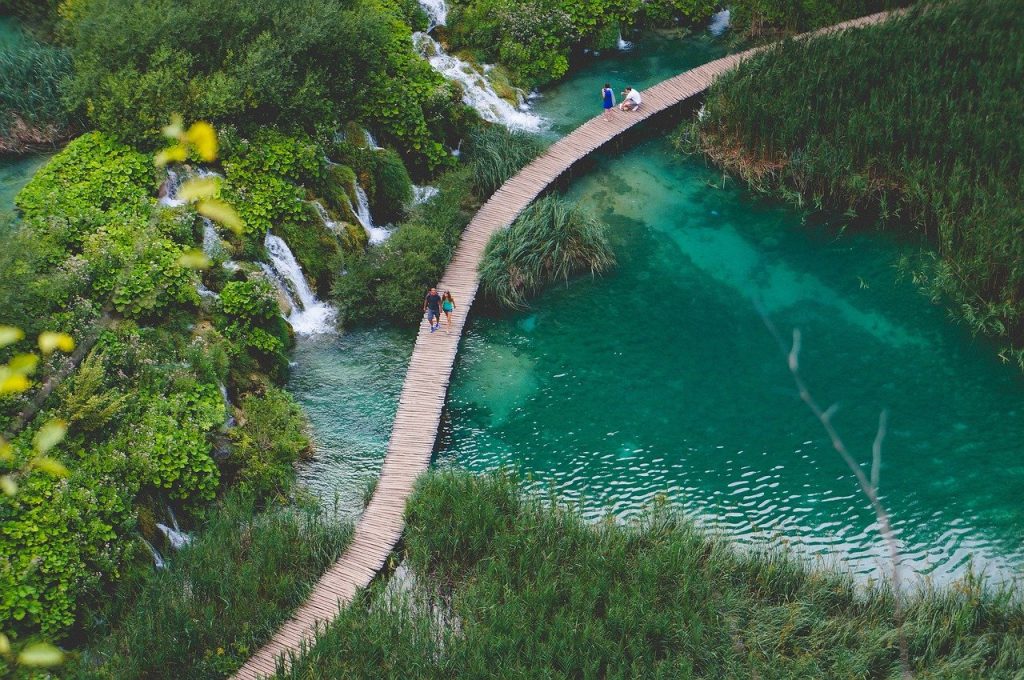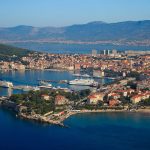Unlike some countries, such as Greece, Hungary, and Estonia, which have announced the introduction of COVID passports for tourists intending to visit, the Croatian Tourism Ministry has taken the view that “the COVID passport system has not been developed at the EU level” and that they will await the decision from the EU, reports Jutarnji List.
It can be learned unofficially that Croatia is not in favor of introducing COVID passports at the moment and that this will be its starting position at a virtual meeting next Thursday, at which EU heads of state or government will discuss this topic.
COVID-passport is a colloquial name for a vaccination certificate, i.e., a certificate that a person has vaccinated against coronavirus, which in some EU countries could replace rigorous measures when crossing the border, like presenting a negative PCR test or quarantine. In other words, a vaccinated tourist who has this certificate (COVID-passport) with them could enter the country without hindrance.
The idea was first put forward publicly by Greek Prime Minister Kyriakos Mitsotakis, who believes it will help kick-start the recovery of the tourism and travel industry. According to the draft of the new law, France envisages the introduction of ‘green passports’ for people who have been vaccinated. The draft law also states that those who cannot prove they are negative for COVID-19 or have not been vaccinated are “banned from certain activities and access to public transport, restaurants, cultural institutions, and other public places.” Spain has also been announced that the authorities there will register their citizens who refuse to be vaccinated and share it with other EU countries.
The idea is controversial from a legal point of view because, in most countries, vaccination cannot be mandatory. On the other hand, there must be no discrimination in the rights of freedom of movement. Another problem will be that citizens still cannot decide for themselves when they will be vaccinated because there will not be enough vaccines for at least a few more months for everyone to be vaccinated.
“To introduce such a restrictive measure in Croatia, it should be acknowledged that the situation is so serious – extraordinary – that it requires quite extraordinary human rights restrictions. Since such a thing is uncommon, we would have to be in a state of a great natural disaster (Article 17 of the Constitution), so the introduction of such a measure would have to be decided by Parliament by a two-thirds majority of all deputies. Or, in other words, as long as the government claims that we have a regular state of constitutional law (Article 16 of the Constitution), this type of restriction cannot be introduced, which represents a kind of coercion,” explains Djordje Gardasevic from the Department of Constitutional Law at the Faculty of Law in Zagreb.
While an agreement is awaited in Brussels, the Croatian Tourism Ministry is preparing a list of hotels and tourist facilities that will be awarded the ‘Safe Travel’ label as proof that they are safe for guests because they respect epidemiological protocols. In about twenty days, the Ministry will start a campaign, ‘Safe stay in Croatia,’ and will award these labels.
“Safety protocols are being prepared for accommodation and catering facilities, including for nautical tourism, and the label will be harmonized with the recommendations of the Croatian Institute of Public Health, which are currently in force. The labels will be awarded at the beginning of February, and the Ministry of Tourism and Sport will keep records of entities with national labels and conduct ad hoc checks on compliance with the measures,” reads the official response of the Ministry of Tourism.
At the end of last summer, Croatia became one of the countries that received the WTTC seal for safe travel, created by the World Travel and Tourism Council (WTTC). The ‘Safe Travel’ trademark was designed to enable travelers to identify destinations and companies worldwide that have adopted global standardized health and hygiene protocols. In a way, it is a guarantee to tourists that they will stay in a facility that adheres to coronavirus control protocols.
“We will have two types of Safe Travel labels – WTTC and national – and the application of safety protocols and achieving the required level of vaccinating tourism workers and the entire population will contribute to strengthening Croatia as a desirable and safe tourist destination, where guest safety comes first,” explained Ivana Crnić, spokeswoman for the Ministry of Tourism and Sport.
“The list will include hotels, marinas, family farms, private accommodation, even airports, and ferries. After all, we have already proven to be a safe destination because no tourists became infected in hotels in Croatia in the summer of 2020,” said Crnić.
For the latest travel info, bookmark our main travel info article, which is updated daily.
Read the Croatian Travel Update in your language – now available in 24 languages.
Join the Total Croatia Travel INFO Viber community.









